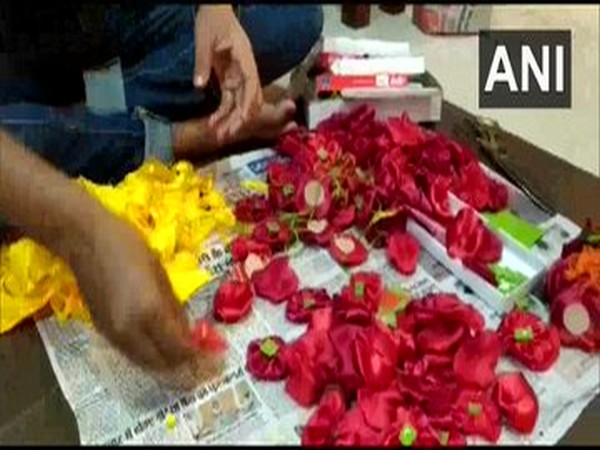Tribal artists make traditional rakhis in Jharkhand, urge people to prefer 'desi' rakhis over Chinese ones
Tribal artists at Jamshedpur-based Kalamandir are making rakhis using traditional items for the upcoming Rakshabandhan festival on August 3.

- Country:
- India
Tribal artists at Jamshedpur-based Kalamandir are making rakhis using traditional items for the upcoming Rakshabandhan festival on August 3. Speaking to ANI, Kalamandir Convener Amitabh Ghosh said that the rakhis needed to be of good quality, with a dash of tradition, and should be available at a cheap price to make the people choose them over the Chinese alternative.
"People are calling it Swadeshi rakhi, Jharkhandi rakhi, but I call them traditional rakhis. But it remains to be seen whether the shopkeepers will sell these over the Chinese ones. If we are able to provide a good product at cheap rates, the market will not look towards Chinese made rakhis," Ghosh said. Artists who are preparing rakhi at the Kalamandir said that they had started using the traditional patterns and materials on masks, etc during the COVID-19 induced lockdown.
"We are trying to use as less plastic as we can and especially during this lockdown phase we are using the local patterns to add a traditional twist to the rakhis. We are promoting this on social media platforms, and the response so far has been great. Till now, we have made over 11,000 rakhis," an artist at the centre said. Meanwhile, in positive news for the artisans in the country shopkeepers in Ahmedabad, Gujarat have claimed that demand for Chinese made rakhis has fallen this Rakshabandhan festival.
"All of us are hurt by China's actions. Customers who come here are willing to pay a little bit more for Indian products instead of Chinese," a shopkeeper told ANI here. Customers at the shop said that they would rather opt for the indigenous rakhis rather than those imported from China as they are better in quality and are traditional. (ANI)
(This story has not been edited by Devdiscourse staff and is auto-generated from a syndicated feed.)
ALSO READ
US State Secy Blinken speaks to Turkish, Chinese, Saudi counterparts on avoiding escalation in Middle East
Highest-level meeting between Chinese and North Korean officials in years sparks discussions on diplomatic relations
Chinese economy to moderate in 2024: ADB
Retired chair of Chinese state-owned Everbright Group indicted on bribery charges
Visiting Chinese trade official warns EU on greentech probe










